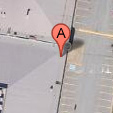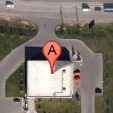- About
- Training
- eLearning
- COR & Auditing
- Resources
- Support
Small Employer COR (SECOR)
AMHSA offers the option for small employers to attain a Small Employer Certificate of Recognition (SECOR). Employers with up to 10 employees develop a health and safety management system and undergo annual evaluation (audit), similar to the large employer process. An effective system can support due diligence by the employer and result in reduction of the social and financial costs of workplace injury and illness. The term “employees” includes full-time and part-time staff, seasonal employees, and temporary employees. The employer must notify AMHSA if the number of employees grows to over 10 employees.
A SECOR is issued to an employer whose health and safety management system meets the Partnerships standard. AMHSA utilizes the 2023 Partnerships SECOR Instrument – available for download here – for annual evaluations. Employers who achieve a SECOR and are registered in PIR are eligible for an automatic 5% industry rate discount on their annual WCB premiums, which could increase to a maximum of 20% based on claims cost performance. The SECOR is valid for three years, as long as it is maintained.
SECOR evaluations (audits) can be either:
- Self assessment or
- Audit conducted by an AMHSA-certified external auditor.
Note that different requirements apply to self-assessments vs. external audits. Self-assessors do not score the tool, and submit documentation related to each question; while external auditors complete scoring and write an audit report, and conduct interviews. Auditors must sign the SECOR Code of Ethics every three years. Details can be obtained and questions can be sent by email to [email protected].
THE AUDIT CYCLE
A 3-year SECOR is awarded to an employer that has demonstrated it has an active health and safety management in place by passing a SECOR Certification audit. Minimum score to pass is 80% overall with no less than 50% in any element. These evaluations can be conducted by self-assessors or external AMHSA-certified auditors. A list of AMHSA-certified consultant auditors is available for download here. A full year’s documentation of the health and safety management system implementation is required.
In the two years following the Certification, a SECOR Maintenance audit must be conducted – minimum score to pass is 60% overall. These evaluations can be conducted by self-assessors or external AMHSA-certified auditors.
All audits are due by December 1st.
In the SECOR expiry year, another SECOR Certification audit must be conducted, passed, and a new SECOR is awarded.
Details can be obtained by emailing [email protected].
Training
Employers in the SECOR program must attend and pass AMHSA’s Health and Safety Management Systems (2 day) course prior to their first SECOR Certification audit. Every three years, the employer must attend a SECOR Refresher training session (1/2 day). Our training schedule is available here. To register, contact [email protected].
Last updated: March 21, 2023






 Email Us
Email Us